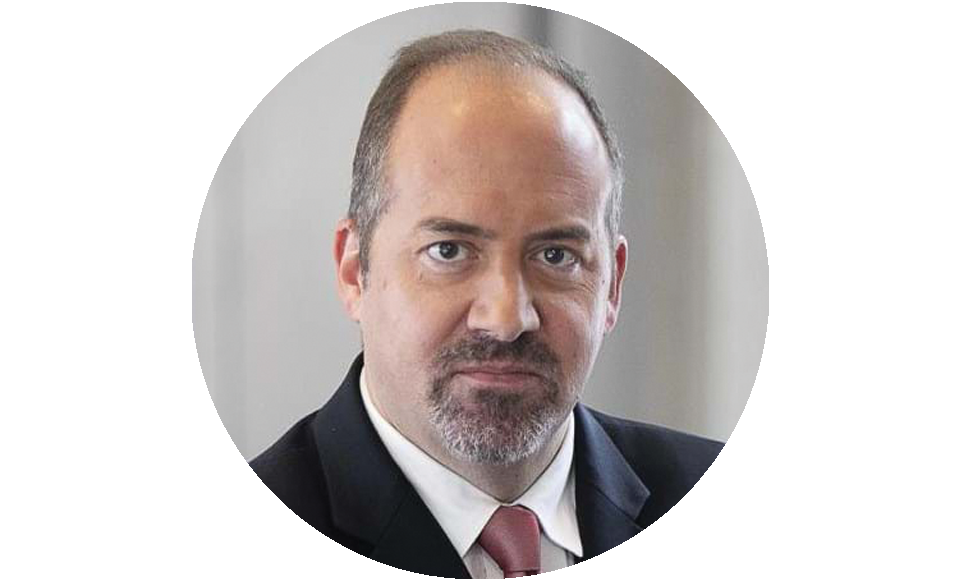Álvaro Santos Pereira, OECD Director of the Department of Economics
Now that we are finally beginning to see light at the end of the tunnel of this accursed pandemic, what matters is understanding just how we are going to get out of the crisis and sustain the recovery both of the different economies and the world economy. As always, the choice of public policies plays a fundamental role in the performance of this recovery and the sustainability of growth and employment. Hence, we should inquire into just which public and economic policies are necessary to obtain a sustainable recovery?
Firstly, it is crucial to vaccinate, vaccinate and vaccinate. The vaccination program remains the most important public (and economic) policy for every country. While we do not have a large percentage of vaccinated people all around the world, we cannot affirm with any conviction that the risks associated with the pandemic are over. Unfortunately, we remain very far from this point. And, while various countries (primarily in North America and Europe but also elsewhere, for example Chile, Israel and Singapore) already have the bulk of their populations vaccinated, there are many more countries where the vaccination process has yet to get beyond its starting phase. Therefore, the inequalities in the vaccination process are stark and clear. Indeed, these enormous inequalities are going to have a very sharp impact on the pace of recovery in the different countries. More specifically, on average, the countries with the greatest percentage of vaccination shall tend to grow and recover more swiftly than countries with low levels of vaccination as they will generally impose fewer restrictions on their economic activity. Therefore, and as generally accepted, there is a fundamental need to accelerate vaccinations in every country as there is a real risk of new variants emerging that may be less susceptible to the effects of vaccination. Correspondingly, countries with greater wealth simply have to assist, to the greatest possible extent, their lesser developed peers in this core task of vaccination. Vaccination is a common and global good and we should all contribute to making sure this happens as swiftly as possible.
Secondly, the economic and social policies deployed to combat the harmful economic and social effects of the pandemic remain in effect even while having begun to change. In the early months of the pandemic, governments and central banks applied unprecedented measures in efforts to stem the rise in unemployment and offset the economic losses caused by virus control restrictions. Thus, central banks were swift to reduce interest rates, purchase an enormous amount of assets and injected unheralded quantities of liquidity into the economy so that this economic crisis did not get transformed into a credit crisis (which would have still more devastating effects on financial and banking systems). Governments also made recourse to previously rarely used measures, including wage subsidies, subsidies paid directly to companies as well as moratoriums and state guarantees for loans to companies and support for households. The results of all these stimuli are certainly reflected in having a far shorter economic recession than would have otherwise been the case without such significant and pro-active public policies. Nevertheless, one of the consequences of these stimulus packages was also a general and significant rise in public debt as well as in the debt held by many companies as well as lots of private citizens.
Indeed, now that we are beginning to leave the crisis behind following the lifting of restrictions enabled by vaccination campaigns, with the economy picking up, these economic stimuli are becoming less important. Furthermore, there are now appearing fairly clear signs that the pandemic triggered a series of impacts on global chains of value that have led to shortages in some essential products (such as semiconductors). The rise in prices has also been brought about by the recovery in the world’s economies coupled with the hike in demand for services (such as cabotage and the transport of goods), raw materials and even labour (particularly in countries where immigration is important). The result of all these factors has been an inexorable rise in inflation, worsened in many countries by currency depreciations and the spike in energy prices. Furthermore, the rise in inflation has led many central banks to begin raising their interest rates in order to keep a control over prices.
This surge in inflation is not limited to developing countries but has equally been felt in advanced countries, especially the United States, due not only to economic recovery but also the unprecedented monetary and fiscal stimuli. Indeed, while true that the central scenarios for macroeconomic forecasts point to this surge in inflation as being essentially temporary, the fact remains that this rise in prices may have set in for the long term. Should such be the case, we shall certainly be dealing with a larger and faster rise in interest rates, which will have important effects on the available income of families and households, companies as well as the states themselves now only able to finance deficits at higher rates of interest.
In other words, we are most probably at a turning point in the economic cycle. In forthcoming months, the governments and central banks shall begin withdrawing the huge economic stimuli provided during the pandemic period, interest rates are going to rise and greater attention will be paid to the levels of public and private debt in various countries.
And what remains for countries seeking to guarantee more sustainable recoveries? Stimulating investment (private and public) and, especially, turning attention back to structural reforms. Knowing that in the times to come, when we shall have to deal with the challenges of an ageing population, climate change, productivity and digitalisation, it is fundamental for governments to embark on ambitious reform programs that deal with these same challenges. Only with another wave of reforms that foster competitiveness and national productivity will governments be able to stimulate their economies and prove able to overcome the enormous challenges faced in the future.
Thus, it is in our hands to guarantee that this crisis gets left behind as quickly and as sustainably as possible. To this end, it is essential to get back to reforms so that our countries may experience more sustained and more sustainable growth.








